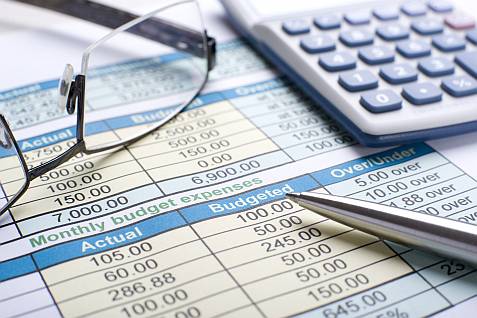January – Financial Wellness Month: What's the Vision for Your Life?
By: Maureen Griffin - Tara Stark Real Estate Group
It’s the month of new beginnings, promises to exercise more, eat healthier and improve our overall health are top-of-mind. Gym memberships are up and even those usually reluctant to call their Doctor, know it’s time to start scheduling annual exams. It is a new year, and time to take steps to a new-and-improved you!
There’s another check-up we need to make this month; January is National Financial Wellness Month. According to the Consumer Financial Protection Bureau’s (CFPB) nationwide survey, here’s how Americans viewed our financial health:
We (the CFPB) learned that financial well-being means having financial security and financial freedom of choice, in the present and in the future. More specifically, having financial well-being is when you:
- Have control over day-to-day, month-to-month finances
- Have the capacity to absorb a financial shock
- Are on track to meet your financial goals
- Have the financial freedom to make the choices that allow you to enjoy life
That’s why people with the same income, financial experiences, or education can have very different levels of financial well-being.
“True financial wellness is based on the growing recognition that in order to help people make progress with their money, just sharing the facts isn’t nearly as important as helping them change their behavior.” - Dave Ramsey
Having worked in the financial services industry for years, I noticed one fact that transcends income brackets: it’s not about how much we make, it’s about how we spend and save it. Here are a few tips, along with links to worksheets, to help us gauge our financial wellness.
- Know where you’re spending your money. Sounds simple, most of us can probably guesstimate about where our paycheck goes each month, but when was the last time we tracked nearly every single penny? Here’s a budget worksheet from the CFPB, that will track your money coming in, money going out and help you tackle step 2. For one month, save every single receipt for each purchase made, in an envelope. Use those receipts to help you complete the budget worksheet. Don’t be overwhelmed, think of it this way, if we were offered $100 for each receipt we put in that envelope, we’d probably do it, right? You just might be surprised how much those receipts will save you next month!

- Analyze where you spent your money. This requires honesty. There is no judgement in money management other than “did I spend my money in areas that are the most important to me?” Money is a tool that we utilize to gain access to things of importance; home, car, clothes, vacation, food, dance lessons, etc. Nobody else can tell you where to spend your money, you need to honestly prioritize the areas that bring you the most value (joy) and go from there. For instance, did you spend $85 on drive-thru fast food this month because you didn’t pack a lunch? Was there something you really wanted to do that cost $85 but didn’t have the money to do it? If that event, let’s say 2 family movie nights, is more important to you than the convenience of drive-thru food, wouldn’t it make sense to shift that $85 to be used for movies rather than burger and tacos? Take a good, honest look at where you spent your money for the month and ask yourself, “is there places I can cut costs so that I can put that money toward savings, house down payment, or anything else that has more value to me?” Finding that balance hits all four bullet points on financial well-being.

- Review your credit report. Federal law allows you to get a free copy of your credit report every 12 months from each credit reporting agency. Make sure all the information on your credit reports are correct and up to date. Credit reports are very important, they may affect your mortgage rates, credit card approvals, and even job applications. Reviewing them regularly can help catch signs of identity theft also. For answers on frequently asked questions about credit reports, click here.
- Make a plan, make adjustments, make it work. Life happens, we all know that. The important thing is to make a financial well-being plan that incorporates your values. Are you saving enough money for retirement? Do you want to buy a first home in 2019? Perhaps you’re ready to purchase real estate investment property? Whatever your goals are, write them down. When life throws you a curve-ball, because it will, simply reassess and rewrite your plan. Prioritize goals; short, medium and long-term. Based on your budget worksheet review, develop a budget that places your income in areas of importance. Those categories will define your goals and values and will determine the health of your financial wellness.





